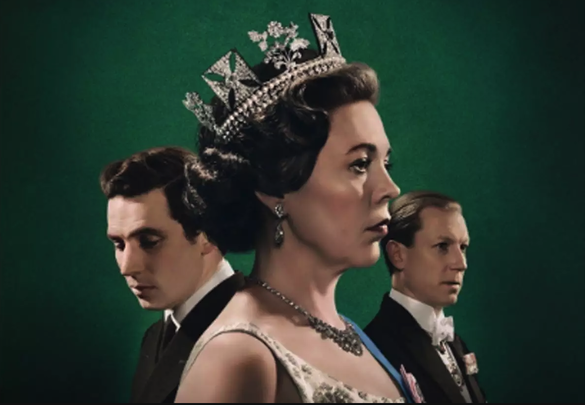The smash-hit period drama based on the British Royal Family gives us all pause to recall Northern Ireland's Troubles and how it gripped the US.
It is with neither pride nor shame that I say this: I don’t know a hell of a lot about the British Royal Family. I can reel off answer after answer on Jeopardy! (rest in peace, Alex Trebek!) until those questions turn to British kings and queens. Then I feel like I’m drowning in a sea of pasty faces and Roman numerals.
That’s one reason I started watching The Crown on Netflix. To try and get some of these cousin-marrying monarchs in order.
Much hype greeted the release of The Crown’s fourth season this week. It’s a fine show -- not great, not terrible, so long as you aggressively ignore what a pointless institution the monarchy is.
But the first episode of season four, and the election of a new president and proud Irish American Joe Biden, serves as a vivid reminder of just how much forgotten and unfinished business there is between the U.S., Ireland and England.
Read more
The new season of The Crown opens on that notorious day in August of 1979 when Lord Mountbatten was killed, in an attack for which the Irish Republican Army later claimed responsibility.
“The 79‐year‐old World War II hero died instantly in the explosion, which occurred a quarter-mile off the coast, near his summer home here in the northwest of Ireland,” The New York Times later reported.
“A 14‐year‐old grandson and a 15-year‐old passenger were also killed and four other passengers in the 29‐foot boat, including a daughter, Lady Brabourne, were seriously injured.”
That same day, 18 British soldiers were killed in an IRA ambush at Warrenpoint.
As it happens, just a few months before these attacks, a certain Margaret Thatcher became British prime minister.
Based on The Crown’s history and, well, you know, history itself, I wouldn’t expect the show to wade too deep into the whole Northern Ireland Troubles thing. I haven’t had a chance to watch the whole new season, but there’s all that Charles and Di and Camilla stuff to get to!

Love Irish history? Share your favorite stories with other history buffs in the IrishCentral History Facebook group.
Which is too bad, because there are a bunch of reasons why folks on both sides of the Atlantic could use a refresher on America, Northern Ireland, and the 1980s.
Next year marks the 30th anniversary of the infamous Hunger Strikes that made Bobby Sands an international icon.
In a day and age when quite a few Irish Americans love to scold immigrants for paying too much attention to events in their native lands, they would do well to recall the degree to which events in the North gripped America.
One of my own aunts, who’d often chauffeur me and my cousins to parks or soccer games, was suddenly doing so in a car with bumper stickers about England’s bloody hands, and how “26 + 6 = 1.”
And it’s not just Fox News types who could use this history lesson.
Acclaimed scholar Ian Buruma recently released a much-praised book about the British-American “special relationship” entitled The Churchill Complex: The Curse of Being Special, from Winston and FDR to Trump and Brexit.
Guess how many pages are dedicated to Irish America’s large, complex role in Northern Ireland? (Here’s a hint -- it’s somewhere between zero and zero.)
Meanwhile, in her own new book, Democratic congresswoman and AOC pal Ilhan Omar is forced to revisit her suggestions that Jewish Americans could not be loyal because they cared so much about Israel. Try telling that to some of the Hibernians who were outraged over Bobby Sands and Maggie Thatcher.
Finally, there was shock and horror at certain British tabloids last week, which ran photos of new president Joe Biden with -- gasp! -- Gerry Adams.
The Biden presidency is likely to put a whole new wrinkle on a variety of issues involving England and Ireland, from Brexit to a united Ireland.
Some people are going to call Biden un-American no matter what he does.
At least he’s in good, historical, Hibernian company.




Comments